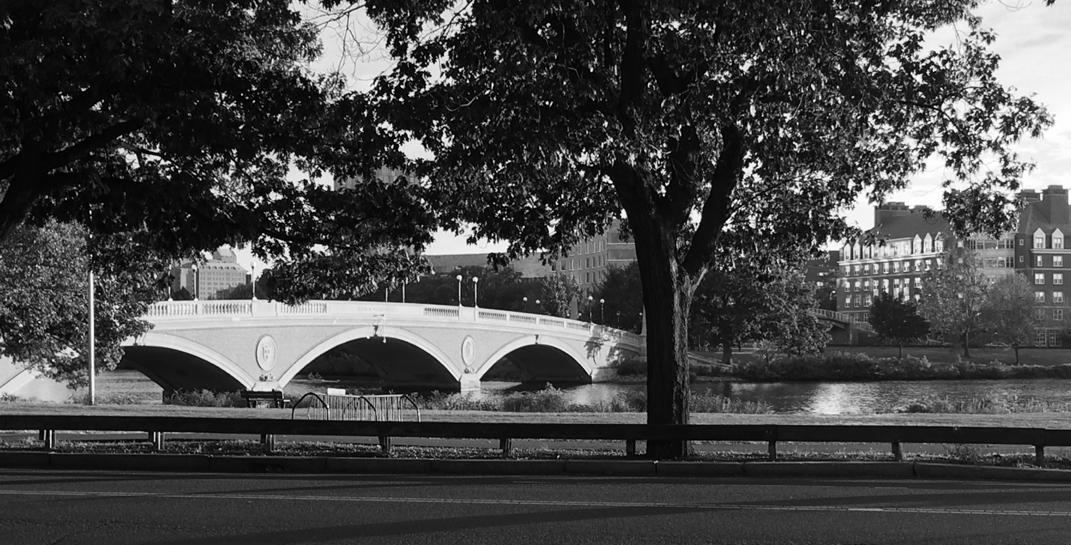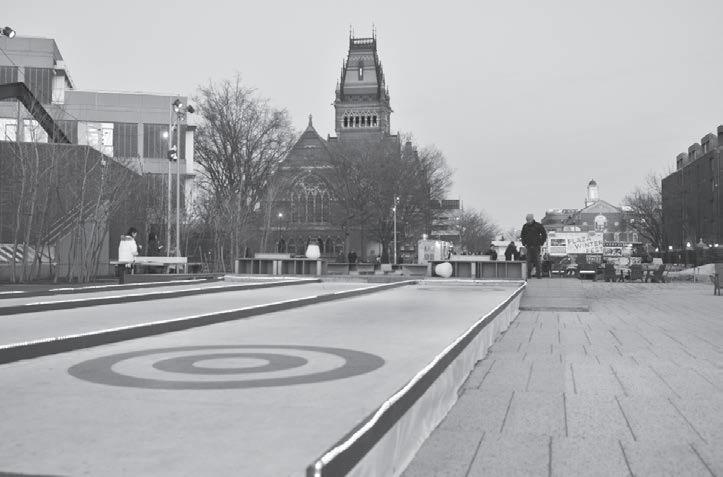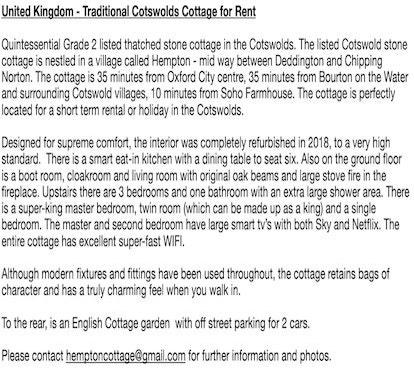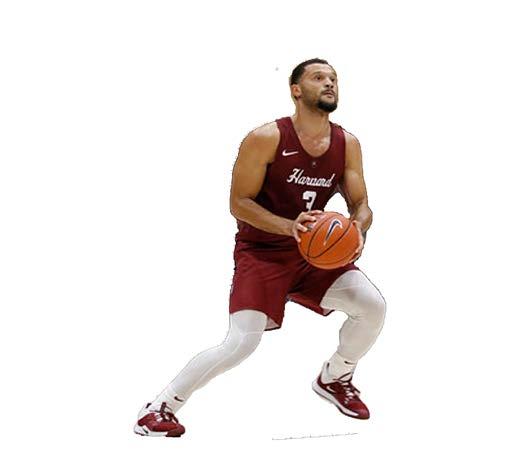Page 3
THE HARVARD CRIMSON | February 18, 2020
georgetown From Page 1
Georgetown Divestment Effects Remain Uncertain Catholic Church. “Our pursuit of building a more sustainable future is guided by our identity as a Catholic and Jesuit institution, and through the inspiration of Pope Francis, who has articulated an ambitious vision for all of us in his 2015 encyclical,” DeGioia wrote. Divestment has become hot-button issue on Harvard’s campus. Over the past year, ramped-up student activism organized by campus group Divest Harvard prompted the Faculty of Arts and Sciences and the Harvard Medical School faculty to vote in favor of divestment. Divest Harvard has put forward Earth Day 2020 — April 22 — as a deadline for the University to divest from fossil fuels.
Georgetown’s decision to divest comes four months after the University of California system announced it would divest its $13.4 billion endowment and $70 billion pension fund from fossil fuels. UC Chief Investment Officer Jagdeep Singh Bachher and the UC Board of Regents’ Investments Committee Chairman Richard Sherman wrote in an op-ed for the Los Angeles Times in late September that the university system planned to divest from fossil fuels not only to combat climate change, but also because of the industry’s perceived risk. “We believe hanging on to fossil fuel assets is a financial risk,” the op-ed reads. “That’s why we will have made our $13.4-billion endowment ‘fossil
trash From Page 1
free’ as of the end of this month, and why our $70-billion pension will soon be that way as well.” Harvard spokesperson Jonathan L. Swain referred to earlier statements made by University President Lawrence S. Bacow regarding divestment. Bacow said in a December interview that he agreed with activists about the necessity of climate action, but disagreed that fossil fuel divestment was the most effective method to effect change. “I share their belief that action is required,” Bacow said. “We just happen to have an honest difference of opinion over what the appropriate action is.” ellen.burstein@thecrimson.com michelle.kurilla@thecrimson.com
PILOT From Page 1
Cambridge Cut Harvard Falls Short on PILOT Payments Trash in Last Year compostable solids are made into fertilizer. In its statement, the DPW credited this program with reducing trash by seven percent, lowering net greenhouse gas emissions, and cutting the cost of disposal.
We’ve been able to achieve this ambitious goal ahead of schedule. Owen O’Riordan Cambridge Public Works Commissioner
Cambridge’s curbside compost program is part of the city’s
zero waste master plan, an initiative aimed at helping the city reduce waste and greenhouse gas emissions. Under the plan, the city also encourages residents to utilize its recycling center and curbside mattress recycling program. O’Riordan thanked residents for their dedication to trash reduction, with the goal of achieving 80 percent trash reduction by 2050. “I want to thank Cambridge residents and our Recycling Advisory Committee for their hard work in helping the city reduce the amount of trash we send to the landfill,” O’Riordan said. “It may take an extra minute or two to separate your items, but it’s maria.gonzalez@thecrimson.com
nearly $12.8 million requested by the city. This amount includes the University’s $6.3 million “community benefits” credit. Program participants can contribute 50 percent of their payments as community benefits. Universities themselves define what constitutes a “community benefit” under the program; the benefits Harvard listed in a 2019 report included partnering with public schools and maintaining its Arnold Arboretum. Harvard-affiliated hospitals enrolled in the program each paid at least 90 percent of the requested amounts, a better rate than many participating institutions — around half of which gave 50 percent or less than the amount the city asked them to contribute, according to a city report.
PILOT coordinator Enid Eckstein said in an interview that the program is essential to the city because the high number of nonprofit institutions operating in Boston means much of its land, which would otherwise be taxable, is tax-exempt. “Over 70 percent of Boston’s budget comes from real estate tax. We don’t have any tax,” Eckstein said. “We have limitations on what we can tax on and not tax.” Eckstein added that she feels the PILOT system is flawed in assessing nonprofit contributions. “We believe that the property that these institutions currently hold needs to be reassessed at 2020 rates. These institutions were assessed and valued in 2010, which I recall was at the bottom of the recession,” Eckstein said.
Boston City Council President Kim M. Janey said in an interview that she is forming a committee to review PILOT and consider potential improvements.
We’re leaving millions of dollars on the table that could be invested in our schools and housing and our roads. Kim M. Janey Boston City Council President
“We’re leaving millions of dollars on the table that could be invested in our schools and
The T closes. We don’t. Breaking news, 24/7.
The Crimson thecrimson.com
housing and our roads,” Janey said. “But we also need for Harvard and others to do their fair share and contribute their full amount in terms of the PILOT.” Harvard spokesperson Brigid O’Rourke wrote in an emailed statement that “Harvard has a long history of being a collaborative and reliable partner to its host communities.” “As a nonprofit, the University engages with the City of Boston in a variety of important ways, including by paying municipal taxes on the University’s non-exempt property, participating in the City’s voluntary PILOT program and delivering hundreds of community programs in Allston-Brighton and throughout Greater Boston,” O’Rourke wrote. simon.levien@thecrimson.com austin.li@thecrimson.com




